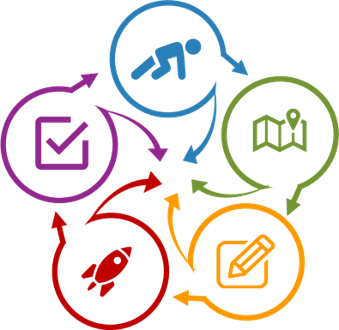Based on: Bower, M., & Torrington, J. (2020). Typology of free web-based learning technologies (2020). EDUCAUSE digital library. https://library.educause.edu/resources/2020/4/typology-of-free-web-based-learning-technologies
(Return to Introduction to Typology of Free Web-based Technologies)
(Search by Instructional Function – opens GoogleSheet in new tab)
Learning Management Systems (LMSs) facilitate the delivery of courses, rather than singular lessons. Additional to delivering content, the features of a LMS include the ability to prescribe tasks, set assessments, track student performance, report and document data, as well as having control of the administration associated with the course.
| Edmodo (http://edmodo.com) | GONE popular LMS platform |
| Seesaw (https://web.seesaw.me) | popular LMS platform pitched towards younger-aged students |
| Google Classroom (https://classroom.google.com) | provides a reliable platform that is popular in primary and high schools |
| Moodle Cloud (https://moodlecloud.com) | offers a “freemium” model |
| Latitude Learning (http://www.latitudelearning.com) | offers a “freemium” model |
| Myicourse (http://myicourse.com) | GONE? offers a “freemium” model |
| Schoology (http://www.schoology.com) | offers a “freemium” model |
| ATutor (https://atutor.github.io) | offers a “freemium” model |
| FormaLMS (http://www.formalms.org) | offers a “freemium” model |
